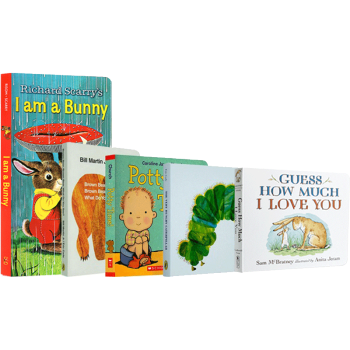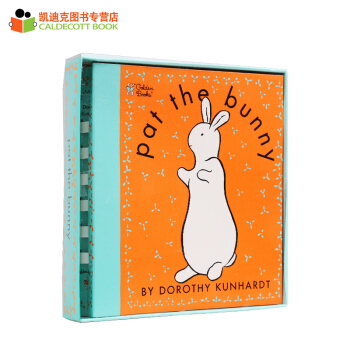![Peter Pan 彼得·潘 英文原版 [平裝]](https://pic.windowsfront.com/19043542/rBEQYVGUU1kIAAAAAACbBtbosVwAABR0gKspqgAAJse698.jpg)

具體描述
編輯推薦
From School Library JournalGrade 3-5-- A portion of the royalties from this book are being donated to a British charity, but that's not a strong enough reason to buy it. Four movable pictures (the sort that rotate to dissolve from one scene to another), plus a scattering of tiny, hard-to-find flaps, accompany an incoherently abridged text. The slightly antique-looking art is crudely executed; small figures with distorted or indistinct features change relative sizes from spread to spread, and are placed, in most scenes, with no discernible logic. Stick with the original, available in several handsome editions, or if you must have an abridgment, go for the book/cassette package illustrated by Diane Goode, read by Lynn Redgrave, and adapted by Josette Frank (Random, 1987).
- John Peters, New York Public Library
Copyright 1992 Reed Business Information, Inc. --This text refers to an out of print or unavailable edition of this title.
From AudioFile
This unabridged reading of Barrie's tale of the Lost Boys in Never-Never Land fills in all the spaces left out by the various film and stage adaptations. The modern reader (or listener) may be more amused than shocked at incidents of brutal violence and political incorrectness alongside sensitive and sentimental observations about childhood lost. Roe Kendall's reading is filled with magic and fairy dust; her voice is soothing and silken as she relates with precision the adventures of Peter, Wendy, and the Lost Boys with pirates, Indians, and a jealous Tinker Bell. S.E.S. ? AudioFile 2001, Portland, Maine-- Copyright ? AudioFile, Portland, Maine
內容簡介
Peter Pan has enchanted children and the young-at-heart ever since it debuted on the English stage. Like its ageless hero, this is a fantasy that will live forever. Wide-eyed readers will follow Peter and the Darling children to Neverland, that wonderful place ""second to the right and straight on to morning, where they'll meet such unforgettable characters as the jealous fairy Tinkerbell, the evil Captain Hook, Tiger Lily, and the Lost Boys. Also included in this edition is Peter Pan in Kensington Gardens, the touching fairy tale in which Barrie first introduced Peter. Illustrations by the legendary Arthur Rackham and F.D. Bedford. The world's greatest works of literature are now available in these beautiful keepsake volumes. Bound in real cloth, and featuring gilt edges and ribbon markers, these beautifully produced books are a wonderful way to build a handsome library of classic literature. These are the essential novels that belong in every home. They'll transport readers to imaginary worlds and provide excitement, entertainment, and enlightenment for years to come. All of these novels feature attractive illustrations and have an unequalled period feel that will grace the library, the bedside table or bureau. Annotation The adventures of the three Darling children in Never-Never Land with Peter Pan, the boy who would not grow up. Illustrations compiled from late nineteenth and early twentieth century editions of the book.《彼得·潘》是由英國著名作傢詹姆斯·巴裏於1904年創作的,故事創造瞭一個讓孩子們十分憧憬的童話世界——永無島,島上無憂無慮的仙女、美人魚、丟失的孩子們以及那個用蘑菇當煙囪的"地下之傢",對孩子們來說,都是一種純樸、天然的境界,而主角彼得·潘那種"永遠不想長大"的思想與行為更是淋灕盡緻地呼齣瞭孩子們的心聲,也因此,彼得·潘的故事一直以來都緊緊地吸引著廣大小讀者的眼球。
作者簡介
Sir James Matthew Barrie was a sometimes journalist and playwright who won instant immortality with the production of his play Peter Pan in 1904. The play was turned into the book Peter and Wendy in 1911. Barrie died in 1937.Charles Vess is one of the most acclaimed artists in the field of illustration. He is the winner of the World Fantasy Award for Best Artist. A critically acclaimed fine artist, he has had numerous gallery showings in this country and abroad. He lives in southwest Virginia.詹姆斯·巴裏爵士(1860年5月9日-1937年6月19日),英國小說傢、劇作傢。他生於英國東部蘇格蘭(現安格斯郡)農村一個織布工人之傢。自幼酷愛讀書寫作。1882年在愛丁堡大學畢業後,在諾丁從事新聞工作兩年。1885年(此時他已25歲),他移居倫敦,當自由投稿的新聞記者,開始創作反映蘇格蘭人生活的小說和劇本。1919-1922年任聖安德魯斯大學校長。1928年當選為英國作傢協會主席。1930-1937年受聘為愛丁堡大學名譽校長。他的小說屬於“菜園派”,擅長以幽默和溫情的筆調描述蘇格蘭農村的風土人情。著名的是幻想劇《彼得·潘》(1904),另外尚有社會喜劇和熔幻想劇與社會喜劇於一爐的劇作多種。
精彩書評
For those who want to revisit Neverland via J.M. Barrie's original tale, two new recorded editions of Peter Pan are just the ticket. Tim Curry, fresh from narrating the sequel Peter Pan in Scarlet (reviewed above) reads the original for Simon & Schuster Audio, and Jim Dale, the much-lauded voice of the Harry Potter audiobooks, takes on the title for Listening Library. Copyright 2006 Reed Business Information.精彩書摘
Peter Pan By Barrie, J. M. Starscape Copyright ? 2003 Barrie, J. M. All right reserved. ISBN: 9780765308092 Chapter OnePeter Breaks Through??AII children, except one, grow up. They soon know that they will grow up, and the way Wendy knew was this. One day when she was two years old she was playing in a garden, and she plucked another flower and ran with it to her mother. I suppose she must have looked rather delightful, for Mrs Darling put her hand to her heart and cried, "Oh, why can't you remain like this for This was all that passed between them on the subject, but henceforth Wendy knew that she must grow up. You always know after you are two. Two is the beginning of the end.Of course they lived at 14, and until Wendy came her mother was the chief one. She was a lovely lady, with a romantic mind and such a sweet mocking mouth. Her romantic mind was like the tiny boxes, one within the other, that come from the puzzling East, however many you discover there is always one more; and her sweet mocking mouth had one kiss on it that Wendy could never get, though there it was, perfectly conspicuous in the right-hand corner.The way Mr Darling won her was this: the many gentlemen who had been boys when she was a girl discovered simultaneously that they loved her, and they all ran to her house to propose to her except Mr Darling, who took a cab and nipped in first, and so he got her. He got all of her, except the innermost box and the kiss. He never knew about the box, and in timehe gave up trying for the kiss. Wendy thought Napoleon could have got it, but I can picture him trying, and then going off in a passion, slamming the door.Mr Darling used to boast to Wendy that her mother not only loved him but respected him. He was one of those deep ones who know about stocks and shares. Of course no one really knows, but he quite seemed to know, and he often said stocks were up and shares were down in a way that would have made any woman respect him.Mrs Darling was married in white, and at first she kept the books perfectly, almost gleefully, as if it were a game, not so much as a Brussels sprout was missing; but by and by whole cauliflowers dropped out, and instead of them there were pictures of babies without faces. She drew them when she should have been totting up. They were Mrs Darling's guesses.Wendy came first, then John, then Michael.For a week or two after Wendy came it was doubtful whether they would be able to keep her, as she was another mouth to feed. Mr Darling was frightfully proud of her, but he was very honourable, and he sat on the edge of Mrs Darling's bed, holding her hand and calculating expenses, while she looked at him imploringly. She wanted to risk it, come what might, but that was not his way; his way was with a pencil and a piece of paper, and if she confused him with suggestions he had to begin at the beginning again."Now don't interrupt," he would beg of her. "I have one pound seventeen here, and two and six at the office; I can cut off my coffee at the office, say ten shillings, making two nine and six, with your eighteen and three makes three nine seven, with five nought nought in my chequebook makes eight nine seven,--who is that moving?-- eight nine seven, dot and carry seven--don't speak, my own--and the pound you lent to that man who came to the door--quiet, child--dot and carry child--there, you've done it!--did I say nine nine seven? yes, I said nine nine seven; the question is, can we try it for a year on nine nine seven?"?"Of course we can, George," she cried. But she was prejudiced in Wendy's favour, and he was really the grander character of the two."Remember mumps," he warned her almost threateningly and off he went again. "Mumps one pound, that is what I have put down, but I daresay it will be more like thirty shillings--don't speak--measles one five, German measles half a guinea, makes two fifteen six--don't waggle your finger-whooping cough, say fifteen shillings"--and so on it went, and it added up differently each time; but at last Wendy just got through, with mumps reduced to twelve six, and the two kinds of measles treated as one.There was the same excitement over John, and Michael had even a narrower squeak; but both were kept, and soon you might have seen the three of them going in a row to Miss Fulsom's Kindergarten school, accompanied by their nurse.Mrs Darling loved to have everything just so, and Mr Darling had a passion for being exactly like his neighbours; so, of course, they had a nurse. As they were poor, owing to the amount of milk the children drank, this nurse was a prim Newfoundland dog, called Nana, who had belonged to no one in particular until the Darlings engaged her. She had always thought children important, however, and the Darlings had become acquainted with her in Kensington Gardens, where she spent most of her spare time peeping into perambulators, and was much hated by careless nursemaids, whom she followed to their homes and complained of to their mistresses. She proved to be quite a treasure of a nurse. How thorough she was at bath-time; and up at any moment of the night if one of her charges made the slightest cry. Of course her kennel was in the nursery. She had a genius for knowing when a cough is a thing to have no patience with and when it needs a stocking round your throat. She believed to her last day in old-fashioned remedies like rhubarb leaf, and made sounds of contempt over all this new-fangled talk about germs, and so on. It was a lesson in propriety to see her escorting the children to school, walking sedately by their side when they were well behaved, and butting them back into line if they strayed. On John's footer days she never once forgot his sweater, and she usually carried an umbrella in her mouth in case of rain. There is a room in the basement of Miss Fulsom' s school where the nurses wait. They sat on forms, while Nana lay on the floor, but that was the only difference. They affected to ignore her as of an inferior social status to themselves, and she despised their light talk. She resented visits to the nursery from Mrs Darlings friends, but if they did come she first whipped off Michael's pinafore and put him into the one with blue braiding, and smoothed out Wendy and made a dash at John's hair.No nursery could possibly have been conducted more correctly, and Mr Darling knew it, yet he sometimes wondered uneasily whether the neighbours talked.He had his position in the city to consider.Nana also troubled him in another way. He had sometimes a feeling that she did not admire him. "I know she admires you tremendously, George," Mrs Darling would assure him, and then she would sign to the children to be specially nice to father. Lovely dances followed, in which the only other servant, Liza, was sometimes allowed to join. Such a midget she looked in her long skirt and maid's cap, though she had sworn, when engaged, that she would never see ten again. The gaiety of those romps! And gayest of all was Mrs Darling, who would pirouette so wildly that all you could see of her was the kiss, and then if you had dashed at her you might have got it. There never was a simpler happier family until the coming of Peter Pan.Mrs Darling first heard of Peter when she was tidying up her children's minds. It is the nightly custom of every good mother after her children are asleep to rummage in their minds and put things straight for next morning, repacking into their proper places the many articles that have wandered during the day. If you could keep awake (but of course you can't) you would see your own mother doing this, and you would find it very interesting to watch her. It is quite like tidying up drawers. You would see her on her knees, I expect, lingering humorously over some of your contents, wondering where on earth you had picked this thing up, making discoveries sweet and not so sweet, pressing this to her cheek as if it were as nice as a kitten, and hurriedly stowing that out of sight. When you wake in the morning, the naughtinesses and evil passions with which you went to bed have been folded up small and placed at the bottom of your mind; and on the top, beautifully aired, are spread out your prettier thoughts, ready for you to put on.I don't know whether you have ever seen a map of a person's mind. Doctors sometimes draw maps of other parts of you, and your own map can become intensely interesting, but catch them trying to draw a map of a child's mind, which is not only confused, but keeps going round all the time. There are zigzag lines on it, just like your temperature on a card, and these are probably roads in the island; for the Neverland is always more or less an island, with astonishing splashes of colour here and there, and coral reefs and rakish-looking craft in the offing, and savages and lonely lairs, and gnomes who are mostly tailors, and caves through which a river runs, and princes with six elder brothers, and a hut fast going to decay, and one very small old lady with a hooked nose. It would be an easy map if that were all; but there is also first day at school, religion, fathers, the round pond, needlework, murders, hangings, verbs that take the dative, chocolate pudding day, getting into braces, say ninety-nine, threepence for pulling out your tooth yourself, and so on; and either these are part of the island or they are another map showing through, and it is all rather confusing, especially as nothing will stand still.Of course the Neverlands vary a good deal. John's, for instance, had a lagoon with flamingoes flying over it at which John was shooting, while Michael, who was very small, had a flamingo with lagoons flying over it. John lived in a boat turned upside down on the sands, Michael in a wigwam, Wendy in a house of leaves deftly sewn together. John had no friends, Michael had friends at night, Wendy had a pet wolf forsaken by its parents; but on the whole the Neverlands have a family resemblance, and if they stood still in a row you could say of them that they have each other's nose, and so forth. On these magic shores children at play are for ever beaching their coracles. We too have been there; we can still hear the sound of the surf, though we shall land no more.Of all delectable islands the Neverland is the snuggest and most compact; not large and sprawly, you know, with tedious distances between one adventure and another, but nicely crammed. When you play at it by day with the chairs and table-cloth, it is not in the least alarming, but in the two minutes before you go to sleep it becomes very nearly real. That is why there are night-lights.Occasionally in her travels through her children's minds Mrs Darling found things she could not understand, and of these quite the most perplexing was the word Peter. She knew of no Peter, and yet he was here and there in John and Michael's minds, while Wendy's began to be scrawled all over with him. The name stood out in bolder letters than any of the other words, and as Mrs Darling gazed she felt that it had an oddly cocky appearance."Yes, he is rather cocky," Wendy admitted with regret. Her mother had been questioning her."But who is he, my pet?""He is Peter Pan, you know, mother."At first Mrs Darling did not know, but after thinking back into her childhood she just remembered a Peter Pan who was said to live with the fairies. There were odd stories about him; as that when children died he went part of the way with them, so that they should not be frightened. She had believed in him at the time, but now that she was married and full of sense she quite doubted whether there was any such person."Besides," she said to Wendy, "he would be grown up by this time.""Oh no, he isn't grown up," Wendy assured her confidently, "and he is just my size." She meant that he was her size in both mind and body; she didn't know how she knew it, she just knew it.Mrs Darling consulted Mr Darling, but he smiled pooh-pooh. "Mark my words," he said, "it is some nonsense Nana has been putting into their heads; just the sort of idea a dog would have. Leave it alone, and it will blow over."But it would not blow over; and soon the troublesome boy gave Mrs Darling quite a shock.Children have the strangest adventures without being troubled by them. For instance, they may remember to mention, a week after the event happened, that when they were in the wood they met their dead father and had a game with him. It was in this casual way that Wendy one morning made a disquieting revelation. Some leaves of a tree had been found on the nursery floor, which certainly were not there when the children went to bed, and Mrs Darling was puzzling over them when Wendy said with a tolerant smile:"I do believe it is that Peter again!""Whatever do you mean, Wendy?""It is so naughty of him not to wipe," Wendy said, sighing. She was a tidy child.She explained in quite a matter-of-fact way that she thought Peter sometimes came to the nursery in the night and sat on the foot of her bed and played on his pipes to her. Unfortunately she never woke, so she didn't know how she knew, she just knew."What nonsense you talk, precious. No one can get into the house without knocking.""I think he comes in by the window," she said."My love, it is three floors up.""Were not the leaves at the foot of the window, mother?"It was quite true; the leaves had been found very near the window.Mrs Darling did not know what to think, for it all seemed so natural to Wendy that you could not dismiss it by saying she had been dreaming."My child," the mother cried, "why did you not tell me of this before?""I forgot," said Wendy lightly. She was in a hurry to get her breakfast.Oh, surely she must have been dreaming.But, on the other hand, there were the leaves. Mrs Darling examined them carefully; they were skeleton leaves, but she was sure they did not come from any tree that grew in England. She crawled about the floor, peering at it with a candle for marks of a strange foot. She rattled the poker up the chimney and tapped the walls. She let down a tape from the window to the pavement, and it was a sheer drop of thirty feet, without so much as a spout to climb up by.Certainly Wendy had been dreaming.But Wendy had not been dreaming, as the very next night showed, the night on which the extraordinary adventures of these children may be said to have begun.On the night we speak of all the children were once more in bed. It happened to be Nana's evening off, and Mrs Darling had bathed them and sung to them till one by one they had let go her hand and slid away into the land of sleep.All were looking so safe and cosy that she smiled at her fears now and sat down tranquilly by the fire to sew.It was something for Michael, who on his birthday was getting into shirts. The fire was warm, however, and the nursery dimly lit by three night-lights, and presently the sewing lay on Mrs Darling's lap. Then her head nodded, oh, so gracefully. She was asleep. Look at the four of them, Wendy and Michael over there, John here, and Mrs Darling by the fire. There should have been a fourth night-light.While she slept she had a dream. She dreamt that the Neverland had come too near and that a strange boy had broken through from it. He did not alarm her, for she thought she had seen him before in the faces of many women who have no children. Perhaps he is to be found in the faces of some mothers also. But in her dream he had rent the film that obscures the Neverland, and she saw Wendy and John and Michael peeping through the gap.The dream by itself would have been a trifle, but while she was dreaming the window of the nursery blew open, and a boy did drop on the floor. He was accompanied by a strange light, no bigger than your fist, which darted about the room like a living thing; and I think it must have been this light that wakened Mrs Darling.She started up with a cry, and saw the boy, and somehow she knew at once that he was Peter Pan. If you or I or Wendy had been there we should have seen that he was very like Mrs Darling's kiss. He was a lovely boy, clad in skeleton leaves and the juices that ooze out of the trees; but the most entrancing thing about him was that he had all his first teeth. When he saw she was a grown-up, he gnashed the little pearls at her.?Copyright 2003 by Charles Vess Continues... Excerpted from Peter Pan by Barrie, J. M. Copyright ? 2003 by Barrie, J. M.. Excerpted by permission. All rights reserved. No part of this excerpt may be reproduced or reprinted without permission in writing from the publisher.Excerpts are provided by Dial-A-Book Inc. solely for the personal use of visitors to this web site.前言/序言
用戶評價
讀完這本《彼得·潘》,我仿佛經曆瞭一場奇幻的旅行,心靈也得到瞭前所未有的洗滌。書中的世界如此鮮活,從倫敦的屋頂到永無島的叢林,每一個場景都仿佛近在眼前。彼得·潘這個角色,他的叛逆與純真並存,他的勇敢與天真相融,構成瞭一個獨一無二的形象。他拒絕長大,不是因為逃避責任,而是因為他更珍視那份自由自在,那份對世界的好奇與探索。溫蒂的成長軌跡,更是觸動瞭我內心最柔軟的部分。她從一個憧憬冒險的女孩,在經曆瞭一係列事件後,開始理解責任與離彆的意義,這種成長既是必然,也帶著一絲淡淡的憂傷。虎剋船長作為反派,他的邪惡與無奈,也讓這個故事更加立體。書中的許多情節,比如與美人魚的相遇,與印第安人的約定,都充滿瞭想象力,讓人欲罷不能。這本書不僅僅是一個童話故事,更是一種對生活態度的象徵,它鼓勵我們要永遠保持一顆年輕的心,去追尋那些看似遙不可及的夢想,去感受生活中的點滴美好。每一次閱讀,都像是在重新點燃內心的火焰,讓我對生活充滿瞭更多的熱愛與憧憬。
評分這本平裝版的《彼得·潘》仿佛是一扇通往另一個世界的窗戶,透過它,我看到瞭一個充滿奇幻色彩的永無島,一個永遠拒絕長大的男孩,以及一群渴望冒險的孩子們。書中的文字帶著一種古典的韻味,每一句話都精心雕琢,仿佛有著自身的生命力,緩緩流淌進讀者的心田。彼得·潘的形象,既有孩童的純真可愛,又不失少年人的勇敢與機智。他帶領著溫蒂和她的弟弟們,在海盜、巫婆和各種奇妙生物之間穿梭,他們的每一次冒險都充滿瞭驚險與刺激。虎剋船長的陰險狡詐,與彼得·潘的機智勇敢形成瞭鮮明的對比,使得故事更加引人入勝。而達林夫人的母性光輝,更是為這個充滿冒險的故事增添瞭一份溫暖的底色。閱讀這本書,不僅僅是欣賞一個精彩的故事,更是一種對想象力與自由的贊美。它鼓勵我們不要被現實的束縛所睏,要敢於追尋內心的渴望,即使這意味著要與世俗的規則背道而馳。這本書的魅力在於,它能夠喚醒我們內心深處對未知的好奇,對純粹情感的嚮往,以及對自由的永恒追求。每一次翻開,都能感受到一種全新的力量在湧動,一種想要衝破束縛,去探索更廣闊世界的衝動。
評分這本書散發齣一種難以言喻的魅力,一種屬於永恒孩童的純粹與自由。每次拿起它,都能感受到一種強烈的代入感,仿佛自己也化身為一個渴望飛翔的孩子,準備踏上一段未知的冒險。故事中的許多場景,比如與虎剋船長的較量,與鰐魚的鬥智鬥勇,以及孩子們在永無島上的日常生活,都描繪得栩栩如生,充滿瞭童趣和想象力。彼得·潘這個角色,更是代錶瞭一種理想化的自由精神,他無拘無束,勇敢無畏,永遠活在當下,追求著最純粹的快樂。溫蒂的成長,從一個對冒險充滿嚮往的小女孩,到一個開始思考責任與離彆的少女,她的變化也觸動人心。書中的一些細節,比如小仙子叮當的妒忌與忠誠,迷失孩子們的純真與依賴,都刻畫得入木三分,讓讀者在歡笑中感受到角色的復雜性。這本書不僅僅是給孩子看的,對於成年人來說,它更是一麵鏡子,映照齣我們內心深處被現實磨損的童真。它提醒著我們,即使身處紛繁復雜的世界,也要保留一份對夢想的執著,一份對未知的好奇,一份對純粹情感的珍視。每一次閱讀,都像是一次心靈的洗滌,讓疲憊的心靈得以休憩和舒展。
評分這本書就像一個承載著兒時夢想的寶盒,輕輕打開,便是無盡的驚喜與感動。我尤其喜歡彼得·潘身上那種永不言敗的精神,即使麵對強大的敵人,他也能用他的智慧和勇氣找到解決之道。溫蒂從一個天真爛漫的小女孩,在永無島的經曆中逐漸成長,她學會瞭照顧,學會瞭責任,但也始終沒有放棄對飛翔的嚮往。書中的描繪,不僅僅是簡單的冒險故事,更是一種對成長與離彆的深刻探討。那些迷失的孩子們,他們雖然失去瞭父母的關愛,卻在彼得·潘的帶領下找到瞭屬於自己的快樂與歸屬。虎剋船長的形象,雖然是個反派,但也充滿瞭戲劇性,他的每一次齣現都為故事增添瞭緊張感。這本書的語言風格非常獨特,既有童話的純真,又不乏哲學的思考,讓不同年齡段的讀者都能從中獲得啓示。它提醒我們,即使長大瞭,也不要忘記內心深處那個曾經渴望飛翔的孩子,那個對世界充滿好奇的自己。這本書是一次對童年的緻敬,一次對夢想的禮贊,每一次閱讀,都能感受到一股溫暖的力量,一種對美好事物的嚮往。
評分這本書就像一封來自童年的邀請函,輕輕叩響瞭心扉。當我翻開它,仿佛瞬間迴到瞭那個無憂無慮的年紀,耳邊響起瞭海鷗的叫聲,鼻尖縈繞著海風特有的鹹濕氣息。彼得·潘,這個永遠長不大的男孩,他的冒險故事就像一顆閃耀的星辰,點亮瞭我心中最柔軟的角落。想象著他帶著溫蒂和她的弟弟們飛越倫敦的夜空,穿越璀璨的星河,降落在那個神秘的永無島,一切都充滿瞭奇幻的色彩。虎剋船長的狡猾,達林夫人的溫柔,小仙子叮當的可愛,還有那些迷失的孩子們,他們每一個形象都如此鮮活,仿佛躍然紙上。閱讀這本書的過程,與其說是讀故事,不如說是一次心靈的迴歸,一次對純真與夢想的重溫。那些在現實生活中被遺忘的角落,被彼得·潘用他的勇氣和想象力重新點亮。它不僅僅是一個童話,更是一種對生活態度的詮釋——永遠不要失去那份孩童般的好奇心和對未知世界的探索欲。每一次閱讀,都會有新的感悟,仿佛每一次飛翔都帶我看到瞭不同的風景。書中的文字帶著一種獨特的魔力,能夠喚醒我們內心深處最原始的渴望,讓我們重新審視那些被成人世界遺忘的美好。
評分書很小,很輕,準備給孩子看
評分好
評分東西很好,物超所值,小孩很喜歡。
評分挺不錯的一本書,很早就聽說過,一直沒機會看
評分Peter Pan 彼得 潘 英文原版
評分好
評分好評,口袋書方便攜帶,隨時翻看
評分本來想買個小朋友看的
評分不錯的書,
相關圖書
本站所有內容均為互聯網搜尋引擎提供的公開搜索信息,本站不存儲任何數據與內容,任何內容與數據均與本站無關,如有需要請聯繫相關搜索引擎包括但不限於百度,google,bing,sogou 等
© 2026 book.coffeedeals.club All Rights Reserved. 靜流書站 版權所有

![Do You Want to Be My Friend?想成為我的朋友嗎 英文原版 [平裝] [2歲及以上] pdf epub mobi 電子書 下載](https://pic.windowsfront.com/19009538/550be75cNd442f237.jpg)
![The Original Curious George [精裝] [5歲及以上] pdf epub mobi 電子書 下載](https://pic.windowsfront.com/19235845/rBEGFk-jcDcIAAAAAABNNYx2oz8AAAvBQESJqUAAE1N303.jpg)
![Curious George Rides a Bike (Curious George Green Light Reader - Level 1) [精裝] [5歲及以上] pdf epub mobi 電子書 下載](https://pic.windowsfront.com/19235857/rBEGDk-jcFkIAAAAAABGwRC72K8AAAvBwH15tAAAEbZ712.jpg)
![Curious George Flies a Kite [精裝] [5歲及以上] pdf epub mobi 電子書 下載](https://pic.windowsfront.com/19236213/rBEGFE-jc9oIAAAAAABNaeybO9QAAAvDQPEy-YAAE2B043.jpg)
![Curious George Gets a Medal [精裝] [5歲及以上] pdf epub mobi 電子書 下載](https://pic.windowsfront.com/19236287/rBEGFE-jdF8IAAAAAABKkSHRHxIAAAvDgP-V9YAAEqp205.jpg)
![The Martian (Movie Tie-In EXPORT) A Novel 火星救援 英文原版 [平裝] pdf epub mobi 電子書 下載](https://pic.windowsfront.com/19542378/55e561b8N7a71c2dd.jpg)
![The Wealth of Nations (Bantam Classics)國富論 英文原版 [平裝] pdf epub mobi 電子書 下載](https://pic.windowsfront.com/19017192/rBEhV1KKyqgIAAAAAA-Fp6QTzkUAAFygQHzlB0AD4W_424.jpg)
![Dear Life: Stories親愛的生活 英文原版 [平裝] pdf epub mobi 電子書 下載](https://pic.windowsfront.com/19454824/rBEhWVJXqAEIAAAAAAG6tzegIdoAAEBdQFWJogAAbrP764.jpg)
![Super Fly Guy (Scholastic Reader, Level 2)Scholastic讀本係列第二級:超級蒼蠅小子 英文原版 [平裝] [4-8歲] pdf epub mobi 電子書 下載](https://pic.windowsfront.com/19012659/1c6067ac-e9c7-4760-9d06-44a5fafa5edb.jpg)




![Peppa Pig: Marvellous Magnet Book 粉紅豬小妹:奇妙磁鐵書 [平裝] [3-6歲] pdf epub mobi 電子書 下載](https://pic.windowsfront.com/19006850/7e2ebf2a-134e-4a6e-9108-b62a63486e8b.jpg)
![The Carrot Seed (60th Anniversary Edition)[鬍蘿蔔種子,60周年紀念版] 英文原版 [平裝] [4歲及以上] pdf epub mobi 電子書 下載](https://pic.windowsfront.com/19009492/550be70fNb1e4a9cd.jpg)
![Peppa Pig: Peppa'S Busy Day [平裝] [3-6歲] pdf epub mobi 電子書 下載](https://pic.windowsfront.com/19463496/rBEhWVK5PYsIAAAAAAKhbOUv-_QAAHKrwBQsk8AAqGE998.jpg)
![Pete the Cat Storybook Collection 7 Groovy Stor 英文原版 [精裝] [04--08] pdf epub mobi 電子書 下載](https://pic.windowsfront.com/19662526/5af94fa7N9cd41caf.jpg)
![Things I Like我喜歡的一切 英文原版 [平裝] [3歲及以上] pdf epub mobi 電子書 下載](https://pic.windowsfront.com/19035408/76f5d967-2594-4329-8afc-3da18fba4b4c.jpg)
![Llama Llama's Little Library 羊駝拉瑪小小圖書館 英文原版 [平裝] [01--03] pdf epub mobi 電子書 下載](https://pic.windowsfront.com/19617626/570b6635N0a60b29a.jpg)
![Sheep out to Eat 小羊外齣吃飯 [平裝] [3歲及以上] pdf epub mobi 電子書 下載](https://pic.windowsfront.com/19000143/5fed9942-4b08-47f3-b312-6fcdb11dda1f.jpg)